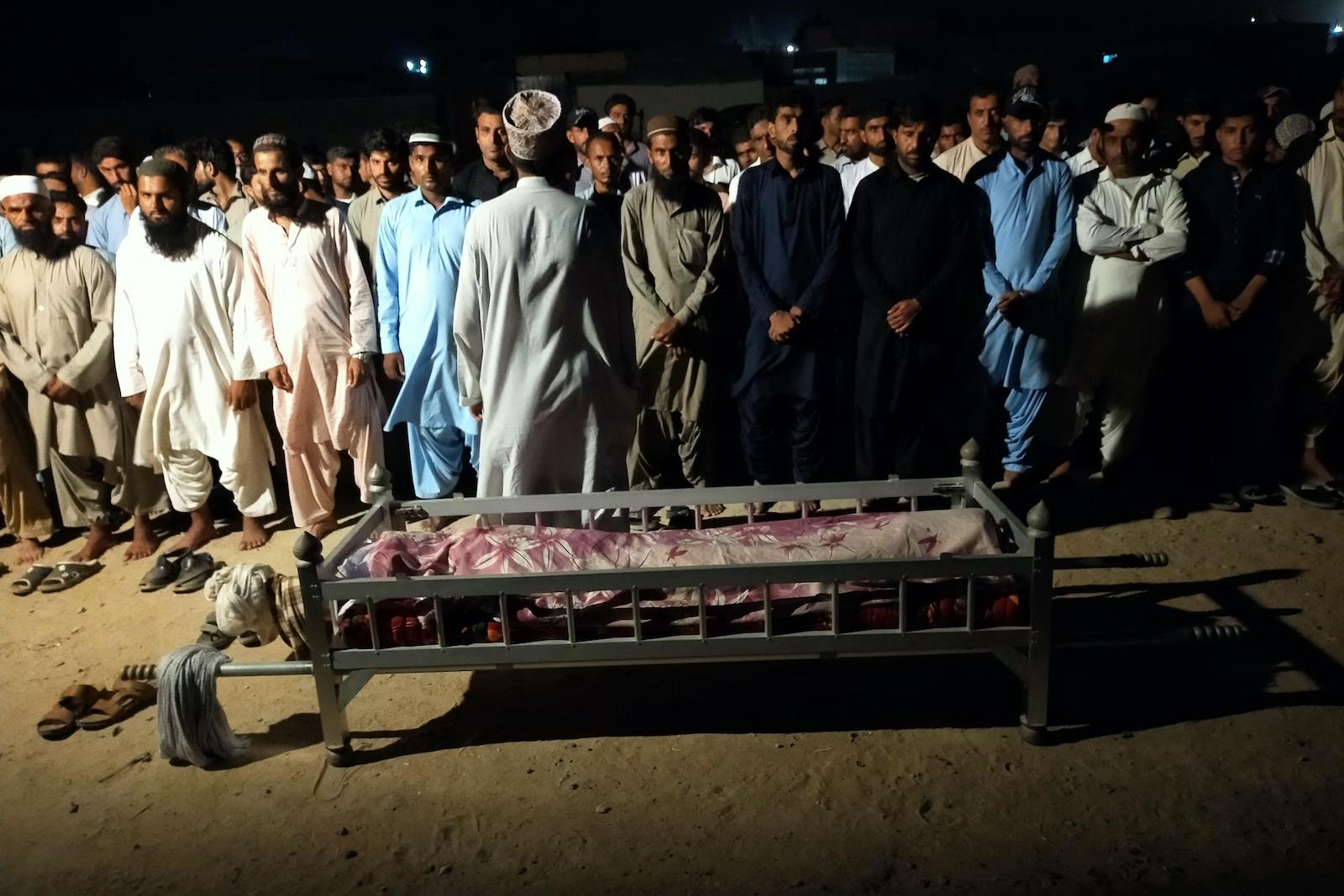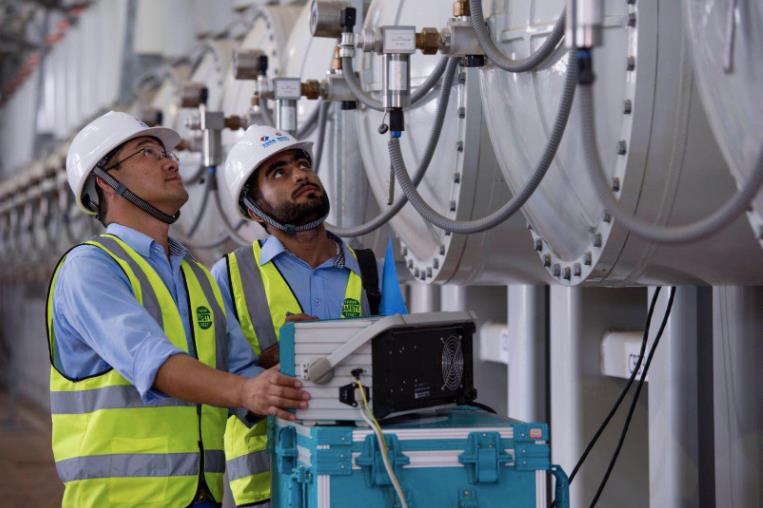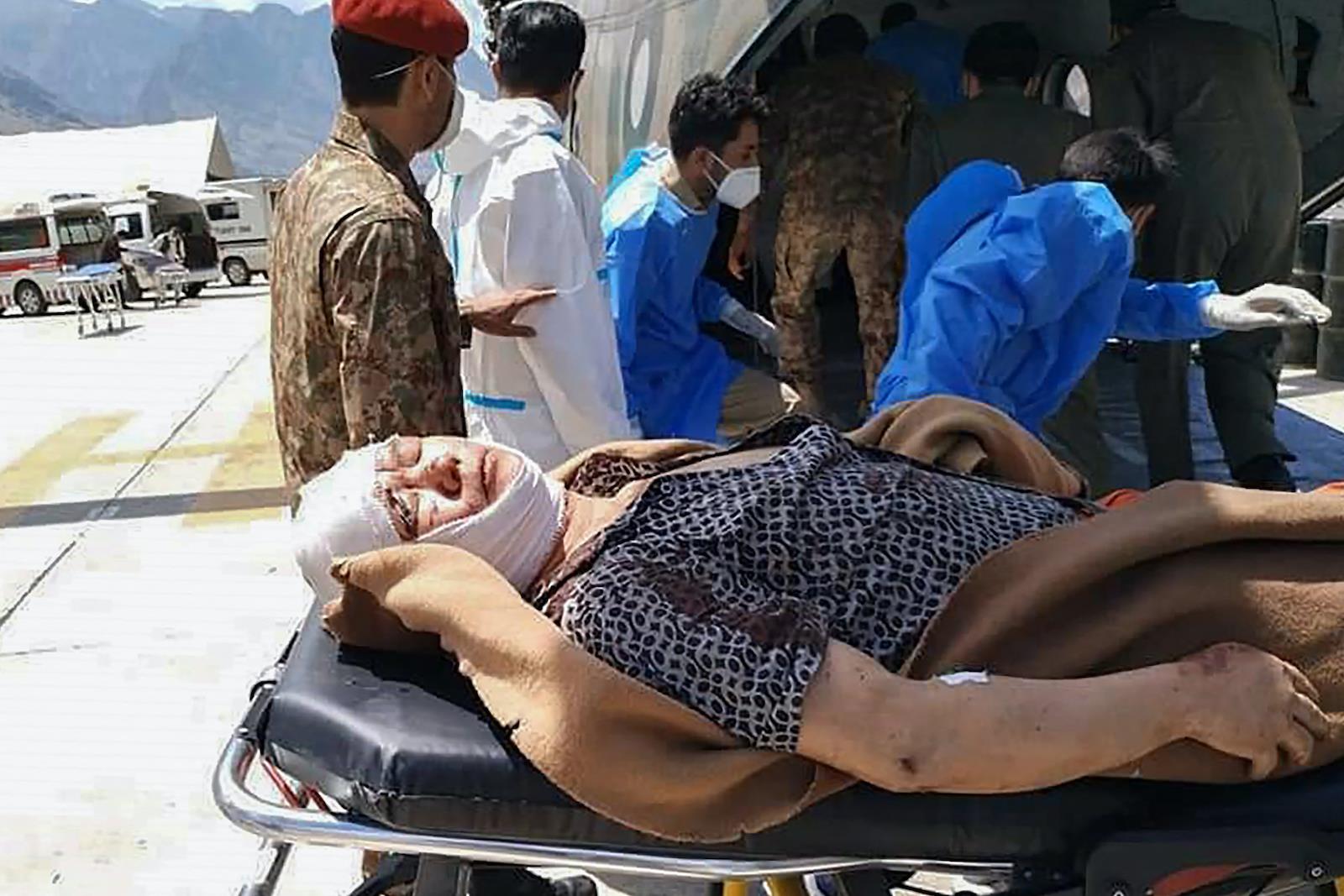(MENAFN- Asia Times) PESHAWAR – China's concerns that the Taliban's takeover of Afghanistan could expose it to new terror threats from affiliated groups are coming to fruition – just not from where Beijing likely anticipated.
Rather than cross-border attacks by terror groups bent on destabilizing its western Muslim majority Xinjiang region, it's China's interests and nationals in Pakistan that are coming under assault.
The Tehreek-e-Taliban Pakistan (TTP), a Pashtun Islamist umbrella organization along the Afghan-Pakistan border that aims to create an Islamic state in Pakistan, has been revived and emboldened by the Taliban's seizure of power.
TTP fighters and a few top leaders were released from prison by Taliban insurgents during the final phases of the militant's blitzkrieg takeover. Baloch separatist groups known to have sanctuaries in Afghanistan have likewise been given a new lease on insurgent life by the Taliban's rise.
Both have accelerated their attacks on Chinese interests in Pakistan since the Taliban takeover, including projects associated with the US$60 billion China-Pakistan Economic Corridor (CPEC), a spoke of Beijing's Belt and Road Initiative (BRI) in the region.
TTP has claimed to have carried out 32 attacks on Pakistani security forces in August. It claimed another 29 assaults through mid-September, killing and wounding a score of security personnel. Last week alone, the TTP inflicted nine casualties on Pakistani military forces.
Last month, two Chinese were injured in a suicide attack that killed two children staged at the Gwadar port, which China is developing as part of the CPEC. Later a suicide bomber detonated explosives close to a vehicle carrying Chinese nationals in Pakistan's restive Balochistan province.
Three people were killed and two Chinese injured in the attack claimed by the Balochistan Liberation Army.

Residents perform a funeral prayer for a victim of a suicide attack in the port city of Gwadar on August 20, 2021, in the latest assault targeting Chinese citizens in the country, officials said. Photo: AFP
The intensity and volume of the terror attacks over the past two months have driven Islamabad to offer a general amnesty to TTP operatives who are willing to surrender and pledge allegiance to the country's constitution, an offer TTP leaders have rejected out of hand.
At the same time, Islamabad's inability to provide security to CPEC projects has brought certain of them to a standstill while raising new questions about the overall scheme's future viability.
That, in turn, is raising new doubts about Beijing's ambition to connect a Taliban-ruled Afghanistan to the CPEC and wider Belt and Road Initiative, which if achieved would consolidate China's position in Central Asia and beyond.
Asad Umar, Pakistan's planning and development minister, said on September 24 that international powers' opposition to the CPEC and the Taliban's takeover in Afghanistan posed security threats in Pakistan.
“Security threat is preeminent. Security challenges are there and these are at an elevated level. These are stemming from the uncertain Afghan situation,” he said at a hurriedly called news conference.
Umer claimed without elaborating that certain global players looked upon the CPEC with“disdain” and they wanted to create disturbance in the country and sabotage the developments.
Pakistani Foreign Minister Mehmood Qureshi had earlier blamed a July 14 suicide terror attack that killed nine Chinese engineers and 13 overall in a suicide attack on a bus headed to the CPEC-financed Dasu Power Plant project on India and Afghanistan's then US-influenced National Directorate of Security intelligence agencies. TTP is believed to have been behind the bombing.
“China firmly opposes any force that uses terrorism to seek geopolitical gains, and calls on countries in the region to cooperate in eradicating all terrorist organizations and uphold common security and development interests of all countries,” Chinese Foreign Ministry spokesperson Hua Chunying said at the time.
The CPEC's problems, to be sure, are bigger than terrorism. It is estimated that Pakistan owes over US$1.4 billion in overdue take-or-pay capacity payments to Chinese Independent Power Producers (IPPs) who have built power plants under the CPEC. Islamabad has sought to reschedule the ballooning debts but Beijing has so far declined.

Chinese and Pakistani technicians at the Chinese-financed Qasim Power Plant near Karachi. Image: Facebook
Chinese IPPs, meanwhile, are concerned about broached plans to increase withholding tax on dividends from 7.5% to 25% and the failure of the Pakistani authorities to establish a revolving account to facilitate automatic payments to the IPPs.
Chinese officials have recently conveyed those and other concerns about overall slow progress on CPEC projects to various Pakistani lawmakers, sources told Asia Times.
Saleem Mandviwala, a former finance minister and chairperson of the Senate Standing Committee on Planning, disclosed in a senate proceeding this month that Chinese authorities have complained that the flagship project had been“ruined” over the past three years and that many Chinese companies were unhappy over the non-payment of dues.
Newly appointed Special Assistant to the Prime Minister on CPEC Affairs Khalid Mansoor, who replaced former CPEC Authority chief General Asim Saleem Bajwa, added that Chinese companies were not satisfied with government institutions' lackluster handling of the CPEC, which had delayed progress on various ongoing projects including, in particular, the Gwadar Airport.
Federal Planning Minister Umer, in a hurriedly called press conference the next day, refuted the allegations that China was unhappy with the CPEC's development and claimed that projects were progressing on schedule.
Senator Rana Maqbool Ahmad, a former member of the Senate Standing Committee on Planning and Development, told Asia Times that CPEC has suffered various setbacks in recent years. He said:“overall feedback indicates that CPEC is moving at a snail's pace and needs to be accelerated and expedited. It is a very huge project, which is the lifeline of the country and the whole region.”
“The slow pace of development would deprive the country of benefitting from the CPEC. We need to move forward and work energetically to complete this project at any cost,” Rana said, adding that the project would provide economic opportunities as well as address poverty in the region.
The rising terrorism threat is further foiling those plans. The China Gezhouba Group Company (CGGC), which lost nine of its engineers in the July 14 terror attack on the Dasu Dam project, has demanded compensation from the Pakistani government for the loss of life and has refused to resume work at the site until it is paid.

Soldiers move from an army helicopter to a military hospital a Chinese national injured in a bomb attack on a bus In Gilgit, Pakistan, on July 14, 2021. Photo: AFP
The government initially claimed that a flaw in the vehicles' compressing device had caused the explosion but later confirmed that it was a terror attack.
Lieutenant General (retd) Muzammil Hussain, head of the Water and Power Development Authority (WAPDA), has held several rounds of meetings with company representatives to persuade them to resume work, but so far to no avail.
Media reports have said that Pakistani authorities are seeking to engage Chinese leaders to arrive at an exact amount of compensation to settle the issue. But the Chinese are clearly not satisfied with the response so far.
The Consul General of China to Karachi recently tweeted claiming that Pakistani Prime Minister Imran Khan had assured Chinese Foreign Minister Wang Yi that Pakistan would severely punish the perpetrators behind the Dasu Dam terror attack, protect the safety of Chinese in Pakistan, and firm up the advancement of CPEC construction.
More terror attacks on CPEC-related projects or Chinese nationals in Pakistan could thus be fatal in more ways than one.
MENAFN29092021000159011032ID1102885949
Legal Disclaimer:
MENAFN provides the information “as is” without warranty of any kind. We do not accept any responsibility or liability for the accuracy, content, images, videos, licenses, completeness, legality, or reliability of the information contained in this article. If you have any complaints or copyright issues related to this article, kindly contact the provider above.